Mar 21, 2017
overhauled thesis and further strategies
Over the last three weeks my thesis has slightly changed. I want to describe why and how.
Start with who I am
I often reflect on the motivation behind my work and find myself wondering why the broader subject of privacy, security and surveillance keeps drawing my interest.
My answer and awareness to that question keeps evolving, but here is how I currently see it. All my educational background has been in the arts and in design. I can’t help but approaching the subjects I am dealing with playfully, seeking to find opportunities for intervention, misuse and appropriations; ‘hacking’ one might call it.
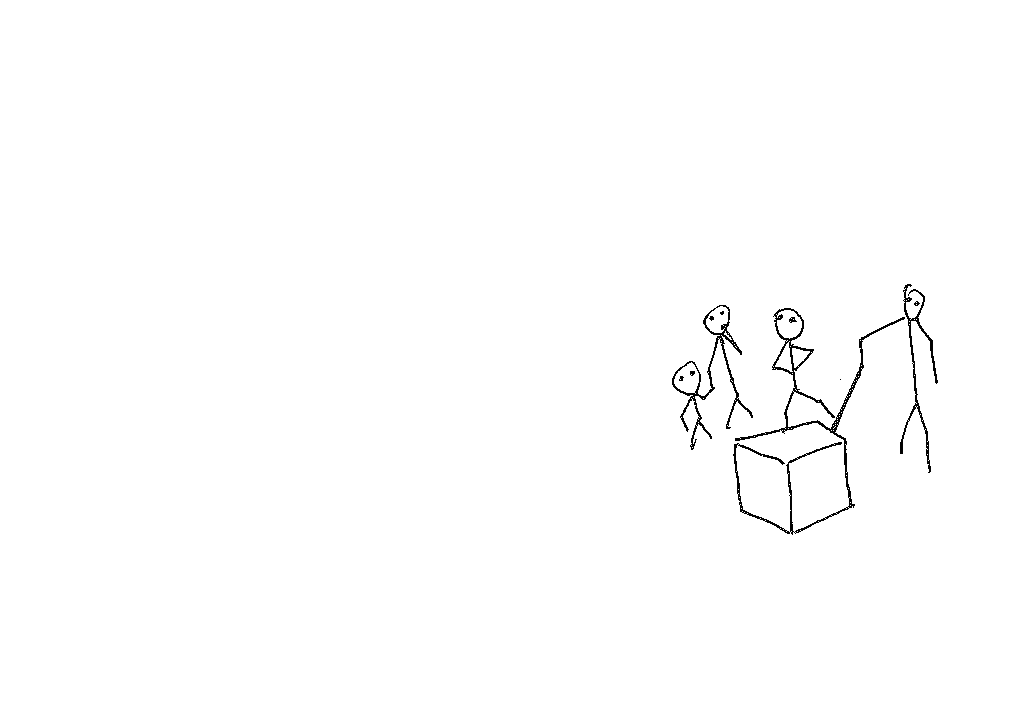
What comes out of ‘art’ and ‘design’, in my mind, is, for one, work that is to be seen, interpreted and interacted with by ‘people’, work that is to be ‘out there’, and, especially when thinking about design, I see the practise of communication.
A metaphor: concepts as substance
By that I mean the translation of concepts into new states in which they can be understood by others. Saying that, I often think of a concept as a substance, water for instance, that has various states. The concept in one state, solid ice for example, might be well understood and studied in detail by a group of experts but be utterly incomprehensible for laymen.
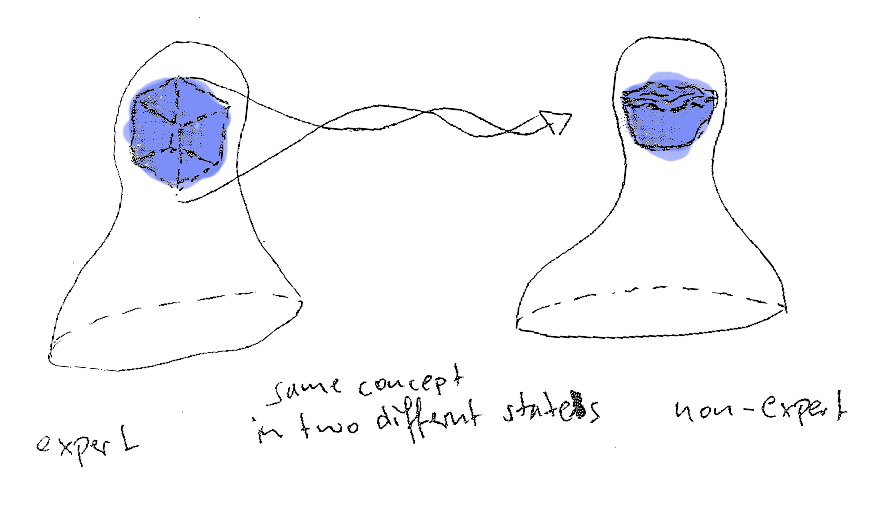
Design then is to engage with the concept, approach it from new angles, use a healthy amount of naivety, and finally be able to bring it into a state, say liquid water, that’s understandable for an audience of former outsiders.

That metaphor applies to technology, too. These highly sophisticated gadgets we use are black boxes and (if anyone at all,) only computer scientists can really understand the mechanics at play. Through design and art however, we can poke holes into the black boxes allowing to glimpse and form understanding of some of its crucial parts.
The role I’d like to take
– I should stop here; what I am trying to say is that I am not an expert in the subjects I am dealing with, but an expert in using, transforming, manipulating, appropriating and making aspects of them understandable to other non-experts.
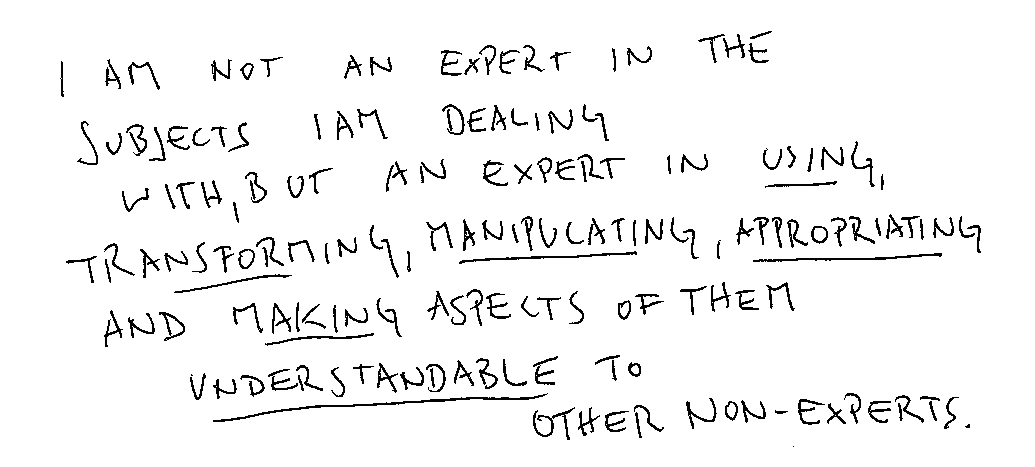
This kind of expert is highly needed when it comes to technology as our lives entangle closer and closer with it, yet the driving mechanisms (scientific, political, economical etc.) are becoming more and more opaque.
Given my background, combined with my love for thinking about technology and the extreme passion of programming and understanding the details of code, being such an expert is what I hope my role in society will be.
Blah, blah, but technology is simply amazing
Regarding the specific subjects, and I am tired if naming it, privacy blah, surveillance blah blah, it is more complicated. These are very serious issues that affect us all. I believe only time will make the real importance of thinking about these subjects, and the fighting for our agency, clear.
There is a million opportunities technology gives, but just as many threats it poses. It is dark, it is often creepy and it is certainly terrifying. All that - but only on the one hand; I love technology and the things it allows us to do. I am not cynical, I am actually excited to live in a time in which ‘friends’ are data points, I think it’s great a distant relative can post photos of her baby online and I see them. Pay with your phone? great. Self driving cars? great. Hell even Uber?! it’s great, too; in theory anyway. The threats are real, so are the benefits.
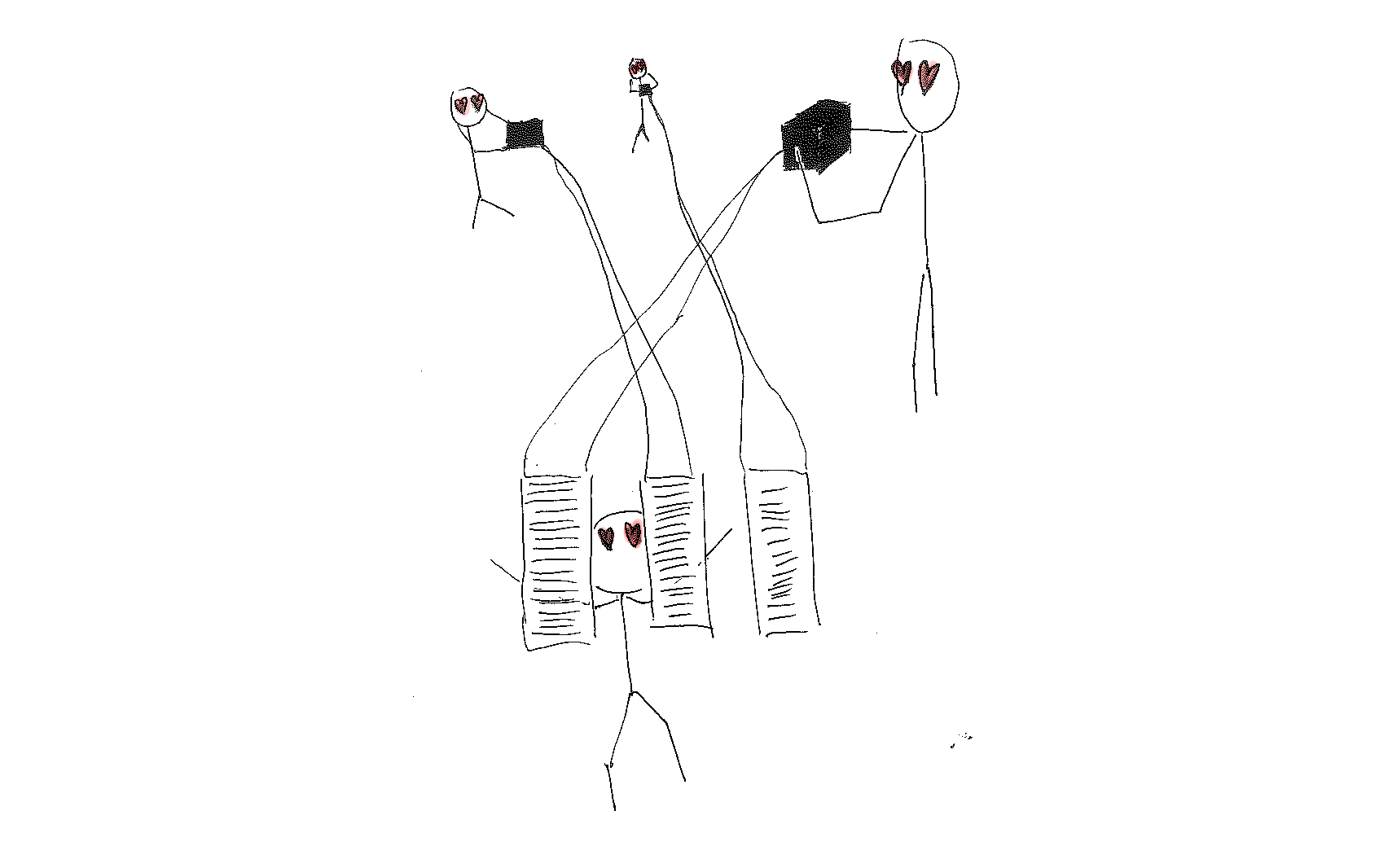
Now here is the thing, crazy things are possible and crazier things are done. When you enter your pin on your cellphone, your finger touching the screen in different spots affects the wifi radio waves the device emits ever so slightly and analysing the signal in a physical distance, your pin can be recovered.That’s scary. But hey, let’s be honest, it’s also pretty fucking amazing, it’s nuts, I find, on a technical level it’s just really damn cool.
Strategies for bringing a (dark) message across
It’s this fascination for the purely technical side that keeps me going despite the (real and obvious) dystopian implications on the human side. It’s no news that we have to be careful with technology, though. People are told so day in, day out. They might be no where close to being careful enough (I’d be a hypocrite to even claim I was myself), but preaching the same message again doesn’t add value. What reaches people is playfulness, is colorful things, is fun things, it things about themselves. These are strategies for telling a message, for making a concept understood.

A good project is one in which the user feels like a hacker; that means making the abstract tangible for them, and manipulatable, letting them understand it by touching, pushing and pulling it.
My take-away
What all that means for me is that I want to frame my work differently both to myself and to others. Despite the excitement and fascination that drives my efforts, when I talk about my work, I tend to talk about the serious bits, the why-you-should-care bits. Instead, I want to try to communicate the why-I-engage-with-it and the small moments of magic technology brings – I type two sentences and the computer knows it’s me, not you, all based on the nano second intervals between any two of my keystrokes! Wow!
It’s these *magical* features that make me engage with the serious aspects after all, so the right way to make others engage should involve the same fascinating entry points.
And finally: what I am working on now
My new thesis approach deals not with the way in which behavioural data can be used to distinguish between people and track individuals, but takes a more intimate turn. It’s more about the user exploring himself as opposed to displaying/forcing into view the threats that are out there.
The revised thesis question is:
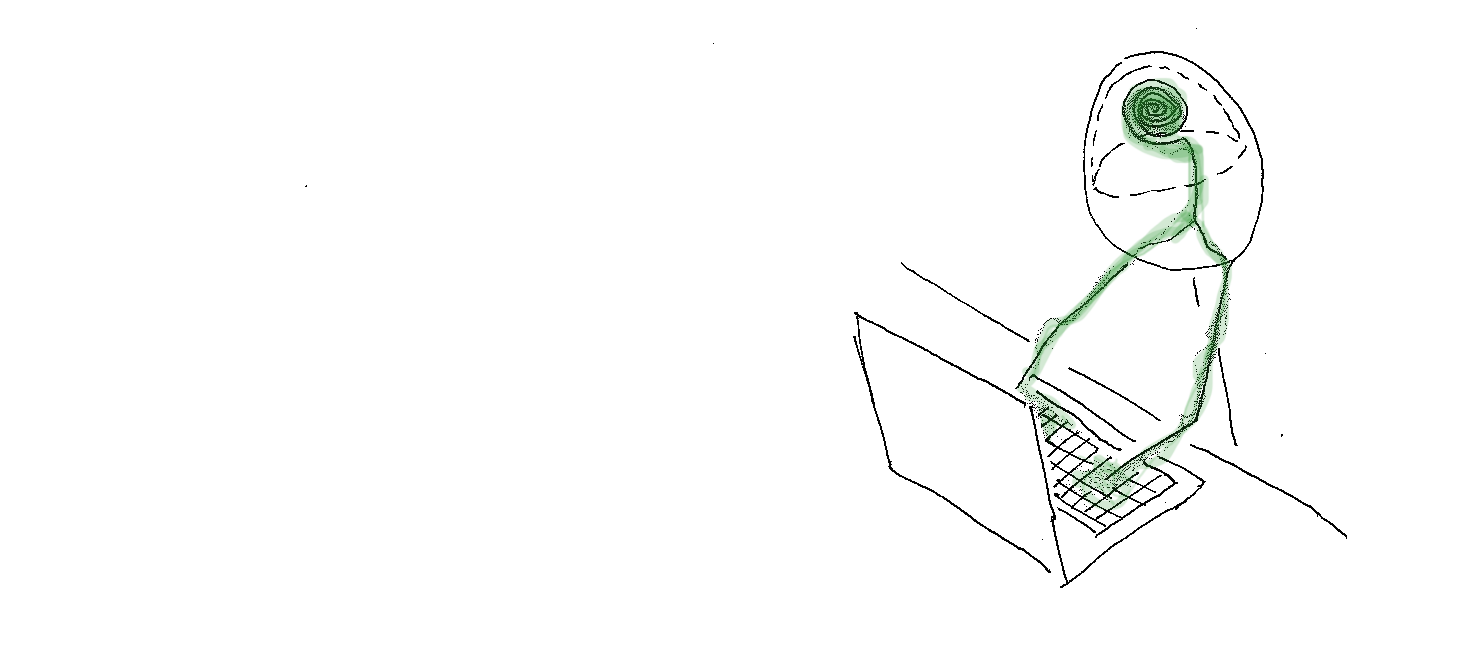
Based on out keystroke rhythm, what can be said about our mental state?
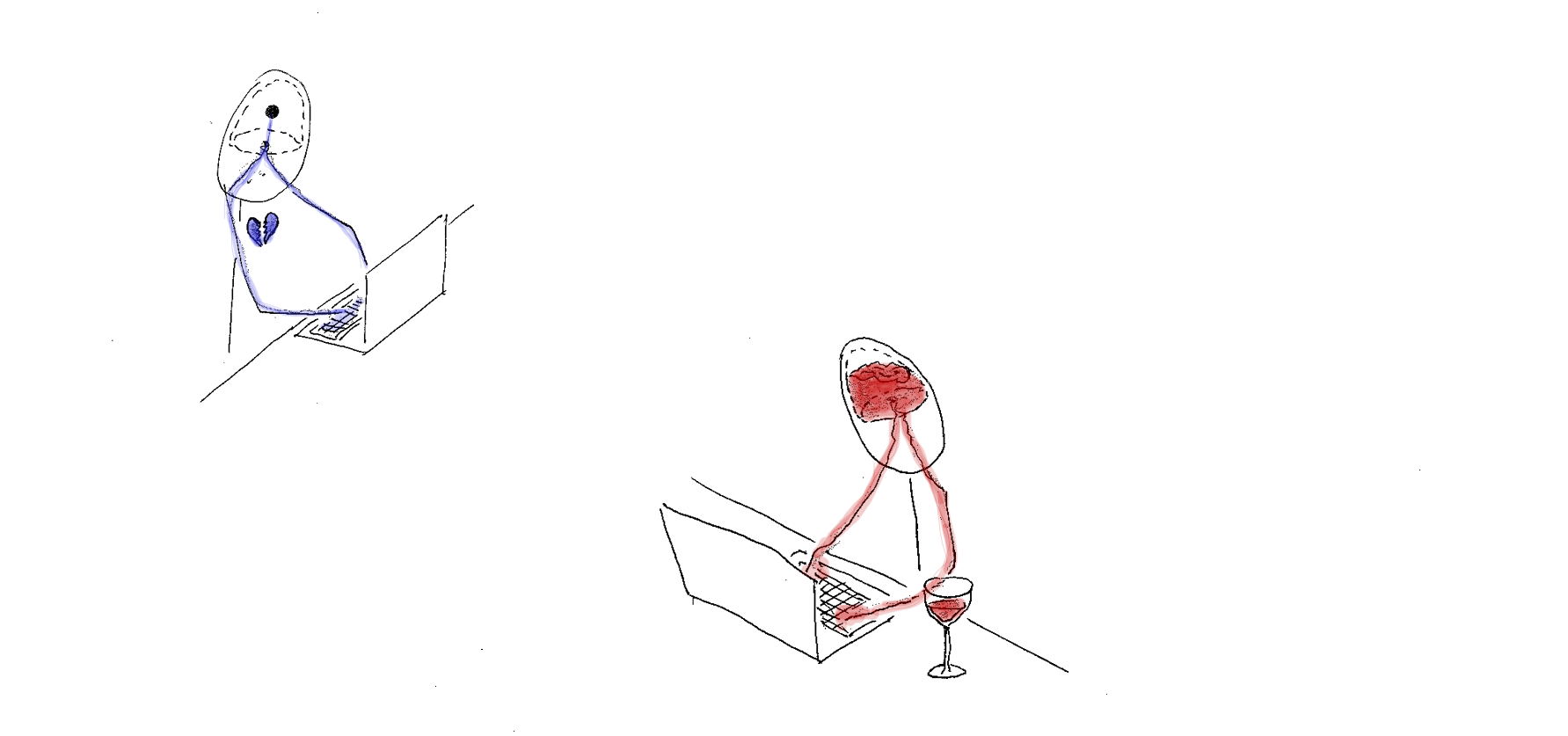
add-on: how do I type differently when I am drunk as to when I am not, and how good is my computer in reading that difference?
I am exploring how our typing in different situations, and how, using data, guesses about out mental state can be made.
How many behavioural versions are there of us, and how are they informed by the ongoings in our life at each moment?
Here is what I set out to do:
A data collection tool
This is a desktop application that runs in the background collection the precise timing as well as the value of every keystroke I do. In addition, the program allows me to attach tags to each data point to describe aspects of my mental state. Later, these tags can be used to analyse the data and correlate mental states with typing style.
A full working version of this app is already done and looks like this:


Data Processing / Analysis
After the collection comes the processing. How do mental state and keystroke pattern actually correlate? Approaches here are either purely statistical or include machine learning. I want to test both. This is the part I am currently on.
An add-on to this will be clustering the data to see if different behavioural versions of one person and exist.
Small Demo
This goes back to distinguishing between people, but is effective as a demo (also what I want to show at upcoming user testing at ITP). It’s a off- or online application that lets people enrol by entering their name and a short piece of text. Then, in “Testing” mode, people can type and the program presents the likelihood of who might be the tester.
Effective visualisation
Lastly, but very important I need a good way to visualise keystroke data. The best approach I can think of is to normalize data first, by taking the average of all keystrokes and then show how specific subsets (with different labels) differ.
Related work exists
This paper “http://hci.usask.ca/uploads/203-p715-epp.pdf” did exactly the same, measuring accuracies up to 88%
I want to thank Surya Mattu here for his feedback and guidance at a point in my thesis where I needed it most (so far).